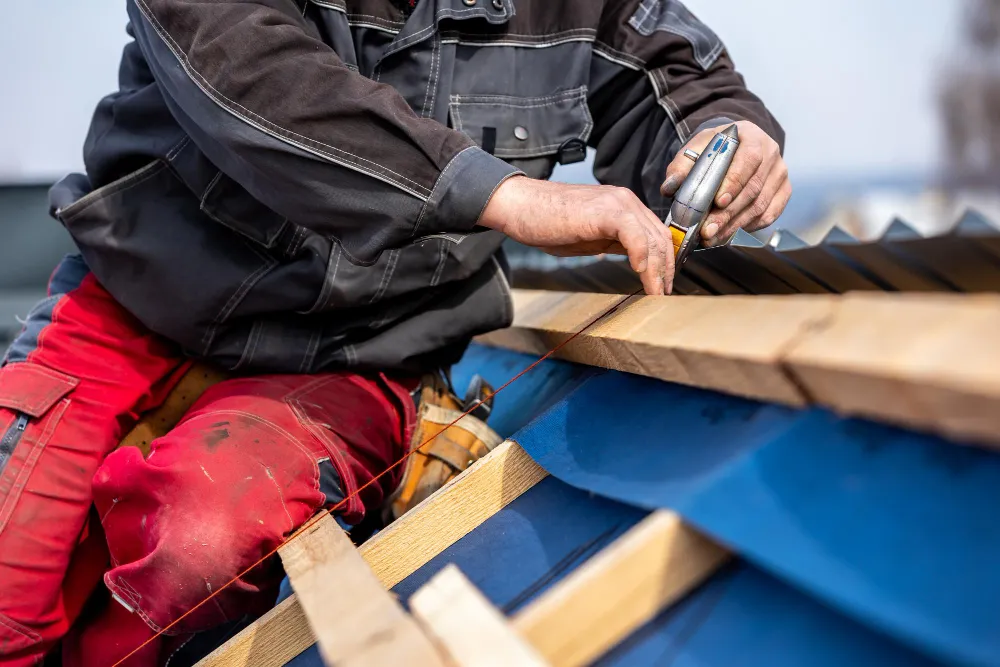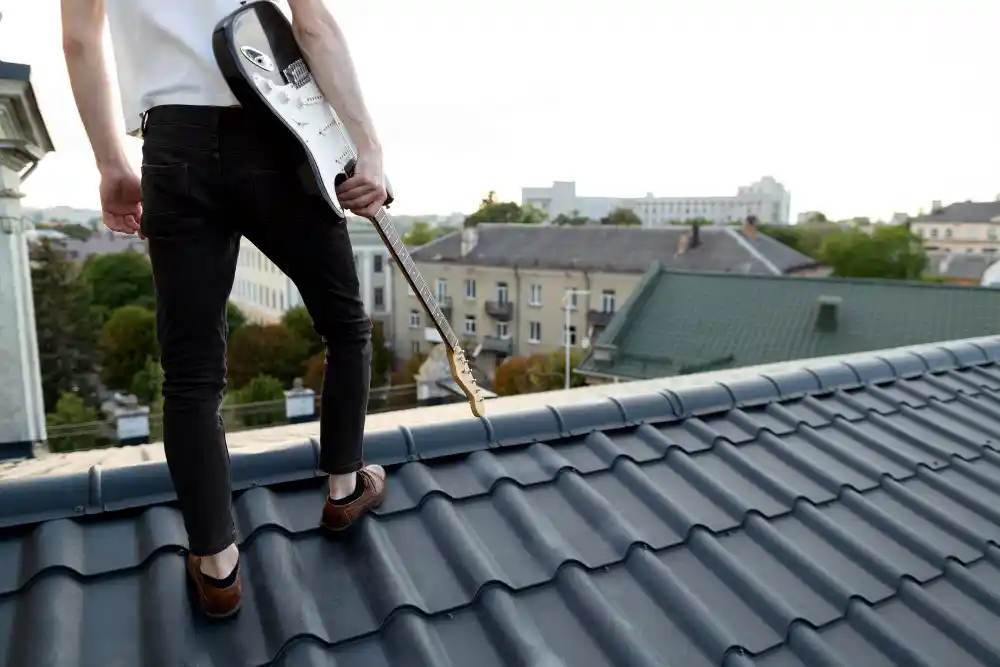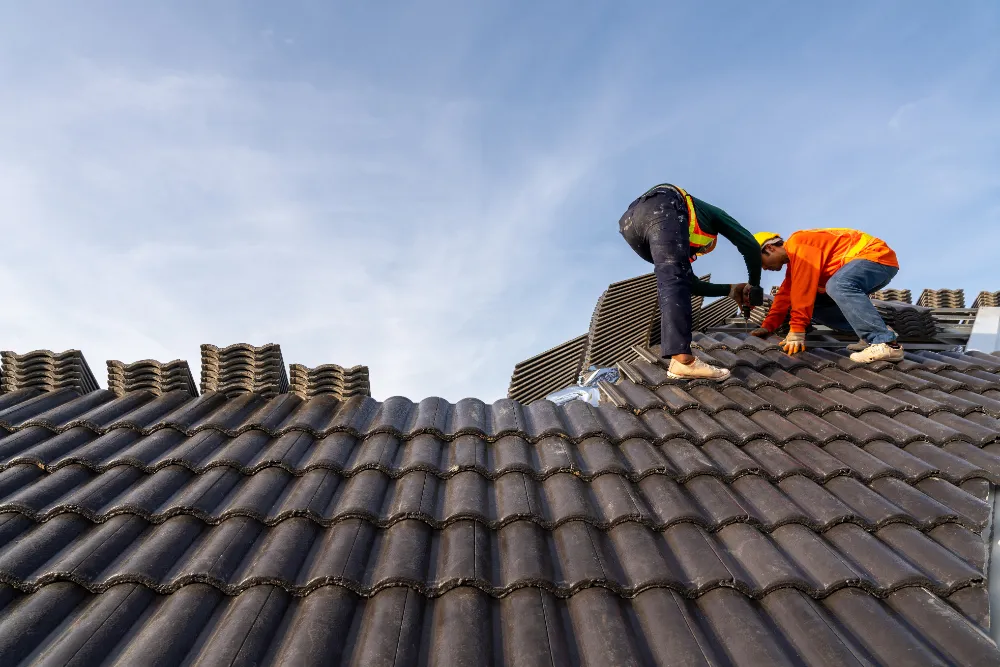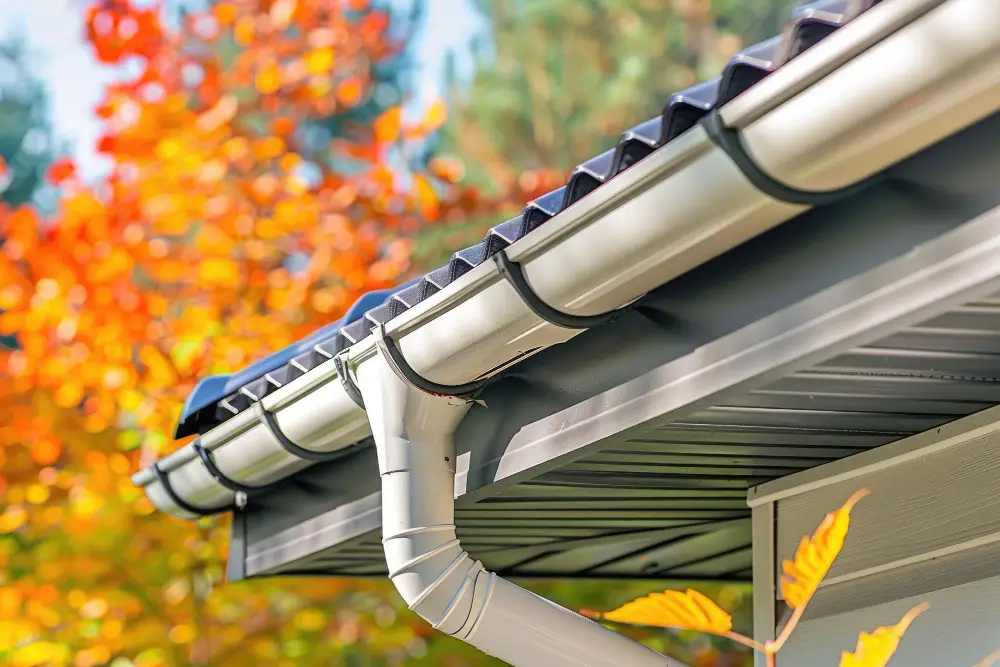Roof Repair Cost in Ireland
Maintaining a sound and well-kept roof is essential for homes and businesses in Ireland. With the country’s often unpredictable and harsh weather conditions—frequent heavy rainfall, gusty winds, and occasional storms—roofs endure significant wear and tear over time. As one of the most exposed parts of a building, the roof plays a crucial role in shielding the interior from the elements, ensuring safety and comfort for residents and occupants.
Roof repairs, therefore, aren’t just about aesthetics; they’re a necessary investment to maintain a property’s structural integrity and prevent more costly issues in the future. Ignoring roof damage, even minor issues like small leaks or cracked tiles, can lead to more extensive damage, driving up repair costs. Whether it’s addressing water leaks, reinforcing structural components, or replacing damaged materials, understanding the scope and cost of roof repairs is vital for Irish property owners to plan and budget effectively.
Typical Cost Ranges for Roof Repairs in Ireland
When it comes to roof repairs in Ireland, costs vary significantly based on the extent of the damage, type of repair, and the materials involved. Here’s a breakdown of typical costs for different levels of roof repair, from minor fixes to more extensive work.
1. Minor Repairs (€100 – €500)
Minor roof repairs address smaller issues that can usually be handled quickly, often within a single day. These may include:
- Replacing a Few Broken or Missing Tiles: A common issue after heavy winds or storms, tile replacements can range from €100 to €300, depending on the number and type of tiles needed.
- Fixing Small Leaks: A straightforward leak repair usually costs between €150 and €350. This includes finding the source of the leak, sealing it, and replacing any compromised roofing materials.
- Gutter Repairs: Damage to gutters and downspouts is often fixed for around €150 to €250, depending on the extent of work and whether any new parts are needed.
Minor repairs are essential to address early signs of damage before they escalate into more severe issues, potentially saving on future costs.
2. Moderate Repairs (€500 – €2,000)
Moderate repairs deal with more extensive damage, which may require a partial roof overhaul or a combination of multiple smaller repairs. Examples include:
- Fixing Larger Leaks or Multiple Leaks: When water infiltration affects larger roof sections, repair costs can range from €500 to €1,000. This may involve removing sections of roofing, sealing leaks, and reinforcing weak areas.
- Partial Roof Replacement: If a specific roof area is severely damaged (for example, by a fallen tree branch), a partial replacement might be required, costing from €1,200 to €2,000. This is more cost-effective than a full replacement but still addresses the damage thoroughly.
- Re-flashing: Flashing (the metal material around chimneys, vents, and valleys) often wears out and may need replacement. Re-flashing costs range from €500 to €1,500, depending on the complexity and accessibility of the areas involved.
Moderate repairs can take one to two days and often require more materials and labor, which drives up the cost. These repairs are essential to avoid structural issues and further water damage to the interior.
3. Major Repairs or Full Re-Roofing (€3,000 – €10,000+)
Major roof repairs or full re-roofing become necessary when a roof has sustained extensive damage or has reached the end of its lifespan. Typical scenarios include:
- Structural Repairs Due to Sagging or Warping: In cases where the roof structure is compromised (e.g., sagging beams or damaged trusses), repair costs can start at €3,000 and may go up to €7,000, depending on the extent of structural work needed.
- Replacing a Full Roof Section: For large properties, replacing a section or the entire roof can cost between €5,000 and €10,000 or more. This often includes removing the old roofing materials, reinforcing the understructure, and installing new roofing.
- Addressing Severe Water Damage: If water has infiltrated deep layers of the roof and affected the underlayment or insulation, costs can escalate. Such repairs, which may also involve addressing mold or mildew, typically cost around €3,500 to €8,000.
Full re-roofing is usually an extensive project, involving several days of labor and requiring scaffolding, multiple materials, and specialized equipment. Homeowners may also need to plan for alternative accommodation during this period if the work is disruptive.
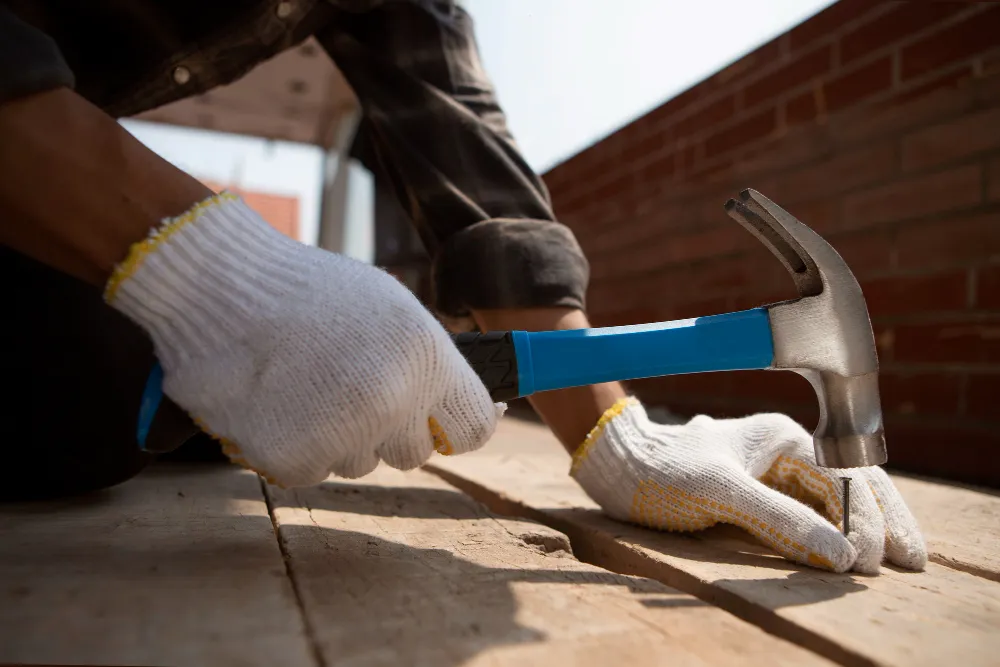
AverageRoof Repairs Costs in Ireland
Roof repair costs in Ireland vary widely, with minor repairs typically costing between €100 and €500, moderate repairs ranging from €500 to €2,000, and major repairs or re-roofing costing upwards of €3,000. While costs may seem high, timely repairs and preventative maintenance are crucial to extending a roof’s life and protecting a home from more severe issues. For any roof repair, it’s always advisable to seek multiple quotes from reputable contractors to ensure quality work and value for money.
Factors Affecting Roof Repair Costs in Ireland
When estimating the cost of roof repairs, several factors come into play that can significantly affect the overall expense. Understanding these elements can help homeowners make informed decisions and better anticipate the budget required. Below are some of the most important factors influencing roof repair costs in Ireland.
Type of Roofing Material
The roofing material plays a major role in determining the cost of repairs. Each material has unique properties, impacting the overall expense due to differences in weight, durability, and installation requirements. Common materials include:
- Tile Roofs: Tiles are a popular choice for Irish homes due to their durability and resistance to weather. However, replacing or repairing tiles can be moderately costly due to the need for precise matching and careful handling.
- Metal Roofs: Metal roofing, including aluminium and zinc, is known for its longevity and minimal maintenance. Repairs to metal roofs can be pricier, especially if sections need to be replaced, as the process often requires specialist tools and expertise.
- Thatch Roofs: Traditional in Ireland, thatch requires specific expertise for repair and is generally more costly due to the specialist skills needed to work with natural materials.
The type of material chosen affects not only the direct repair cost but also the longevity and durability, which in turn can influence future repair needs.
Extent and Type of Damage
The severity and type of roof damage are primary drivers of repair costs. Minor issues, such as a few missing or damaged tiles, are generally less costly to fix than more extensive problems, such as a persistent leak or structural damage to the roof deck. Common types of roof damage include:
- Broken or Missing Tiles/Shingles: Replacing tiles or shingles is a straightforward job, though finding matching materials might add to the expense.
- Leaks and Water Damage: Water damage can be tricky to address, especially if it has spread to the underlying layers. Repairing leaks may involve replacing roofing material and waterproofing layers, driving up the cost.
- Gutter and Downspout Issues: Problems with gutters and downspouts, such as clogging or damage, can lead to water pooling and potentially damage the roof itself. Repairing or replacing these components is essential for preventing more serious issues.
Each repair type requires different levels of labour and materials, making the cost fluctuate based on the specific issues at hand.
Roof Accessibility and Height
The design and height of a roof can also significantly influence repair costs. Roofs that are difficult to access or particularly steep in pitch require more time, equipment, and safety measures. Some factors to consider include:
- Height: Taller roofs require scaffolding or other equipment to ensure worker safety, which adds to the labour cost.
- Complex Roof Design: A roof with multiple pitches or intricate designs can increase repair costs due to the additional work involved in maneuvering around complex structures.
- Accessibility: If a property is situated in a hard-to-reach location, such as a building with limited access points, repair crews might require specialized equipment to perform the job safely and efficiently.
The more challenging it is to access the roof, the higher the labour cost is likely to be.
Labour and Contractor Fees
Roof repair costs also vary based on contractor rates, which can differ depending on location, experience, and service quality. In Ireland, rates can range from approximately €40 to €60 per hour for roof repairs, with experienced or highly-rated contractors generally charging more. Homeowners should look for professionals with a strong track record and positive customer reviews, as quality work is essential for avoiding further issues.
Some tips when hiring a contractor include:
- Requesting Multiple Quotes: Obtaining quotes from different contractors can help homeowners compare rates and select the best option for their needs and budget.
- Verifying Insurance: Ensuring the contractor has appropriate insurance is essential to cover any accidental damage or injuries during the project.
Experienced contractors might charge more but often provide better quality work, helping avoid repeated issues and future repair costs.
Get reliable roof repairs with O’Shea Roofing in Dublin – quality service to keep your roof strong and secure. Contact us today for a free quote!
Location of Property
The geographical location within Ireland can also affect roof repair costs. Urban areas, like Dublin, may have slightly higher rates due to increased labour demand, while rural areas may incur additional charges for material transportation or remote access. Some location-related factors include:
- Transportation Costs: Delivering materials to a remote property can increase costs, particularly for heavier items like tiles or metal roofing.
- Local Market Rates: Contractors in high-demand areas may charge more, while those in less populated regions might offer more competitive rates.
For properties in remote or hard-to-reach locations, the additional logistics can add to the overall cost of the repair project.
Understanding these factors helps homeowners in Ireland budget more effectively and make informed choices when it comes to roof repairs. By considering aspects such as the roofing material, the extent of the damage, the accessibility of the roof, contractor fees, and the property location, they can better estimate costs and select the most suitable repair strategy for their specific situation.
Additional Costs to Consider in Roof Repair
When budgeting for roof repair in Ireland, there are a few additional costs to keep in mind beyond the basic repair costs. These costs can vary based on the complexity of the project, the specific location, and seasonal conditions. Below is a breakdown of some of the most common additional costs that homeowners should consider.
1. Roof Inspection Fees
- Purpose of Roof Inspections: Before beginning any repair work, a professional roof inspection is often recommended to assess the full extent of the damage. This initial inspection helps homeowners get a clear view of any issues, allowing for a more accurate repair quote and potentially identifying hidden damage that could escalate if left unaddressed.
- Cost of Inspection: The cost of a roof inspection in Ireland can range between €100 and €300, depending on the complexity and accessibility of the roof. Some roofing companies may offer free inspections or waive the inspection fee if they’re hired for the repair job, but this varies by contractor.
- Benefits of Inspections: Regular inspections can help prevent minor issues from turning into costly repairs, ensuring the roof’s longevity and reducing the likelihood of unforeseen expenses.
2. Permits and Legal Requirements
- Planning Permission: In Ireland, most roof repairs won’t require planning permission; however, some structural changes or complete roof replacements may require it, especially if the property is in a protected area or involves heritage buildings. Planning permission fees vary but are typically in the range of €30 to €60, though complex projects may require additional fees.
- Safety Compliance Costs: In certain cases, additional safety compliance costs may arise, particularly for work on high or multi-story buildings. For example, scaffolding or safety barriers might be needed, and these can add between €100 and €500 or more, depending on the roof’s height and accessibility.
- Environmental Requirements: When working in environmentally sensitive areas, there may be regulations related to materials and waste disposal. For instance, old roofing materials might need to be disposed of according to specific guidelines, which can add to the overall cost.
3. Weather Considerations and Seasonal Impact
- Timing of Repairs: The season in which repairs are performed can affect the overall cost. Summer and early autumn are typically ideal times for roof work due to more predictable weather, which can improve project timelines and reduce delays. However, scheduling repairs in winter or during Ireland’s rainy seasons can be more expensive due to weather disruptions and additional safety precautions required for wet or icy conditions.
- Cost Implications of Delays: Adverse weather conditions can sometimes force delays, leading to potential overtime charges or extended rental fees for equipment like scaffolding. Additionally, there might be higher labor costs for roofing work during colder months, as it’s generally harder and more time-consuming to perform repairs in bad weather. Check How Dublin’s Weather Affects Your Roof.
4. Debris Removal and Waste Disposal
- Waste Management: Roof repairs, especially larger projects, can produce significant waste, including old shingles, underlay, damaged structural components, and other materials. Safe and compliant disposal of these materials can incur extra costs, particularly if hazardous materials (such as asbestos in older roofs) are involved.
- Typical Waste Disposal Fees: Homeowners might pay between €50 and €200 for basic debris removal, while costs can be higher if a skip rental is necessary. For example, renting a small skip can add approximately €100–€250 to the project cost, depending on the size and location.
- Environmental Compliance: In cases where specific materials require environmentally safe disposal, such as asbestos, specialized waste disposal companies may be required, and these services can significantly increase disposal costs.
Tips to Reduce Roof Repair Costs
Roof repairs are a significant investment, but homeowners can take practical steps to reduce these costs while ensuring their roof remains in good condition. Here are some tips to help keep roof repair expenses manageable:
1. Regular Roof Maintenance
Consistent roof maintenance can prevent minor issues from escalating into costly repairs. By regularly cleaning gutters, removing debris, and inspecting the roof for visible wear and tear, homeowners can catch potential problems early. Simple maintenance tasks include checking for loose or damaged tiles, looking for signs of leaks, and ensuring flashings around chimneys and vents are intact. Regular maintenance is often much cheaper than addressing major damage caused by neglected issues.
2. Insurance Coverage
Many home insurance policies cover roof damage, especially when it results from unforeseen events like storms or severe weather. Reviewing your insurance policy can help you understand what’s covered and identify any gaps. If roof damage does occur, filing a claim can reduce out-of-pocket repair expenses. It’s essential to document damage with photos and keep records of inspections or repairs, as this can support your claim and expedite the process.
3. Get Multiple Quotes
Roof repair costs can vary significantly between contractors, so getting multiple quotes is crucial. This allows homeowners to compare prices, timelines, and services offered, helping them make an informed decision. When requesting quotes, asking detailed questions about the scope of work, materials, and potential additional charges can prevent unexpected costs. Finding a balance between affordability and quality is key, as cutting corners with low-quality work may lead to higher repair costs later.
4. Opt for Off-Season Repairs
If possible, scheduling roof repairs during the off-season can reduce costs, as demand for roofing services often drops in milder months. Contractors may offer lower rates during times when they experience a lull in business, such as late autumn or early spring. Although Irish weather can be unpredictable, some contractors may provide discounts or be more flexible with pricing outside of peak repair seasons.
5. Prioritize Preventive Measures and Upgrades
Investing in preventive measures like roof coatings, waterproofing, or high-quality flashing can extend the roof’s lifespan and reduce the frequency of repairs. Additionally, using durable materials can protect against Ireland’s harsh weather conditions, reducing long-term costs. While these upgrades may have upfront costs, they can save money over time by reducing the likelihood of future repairs and improving the roof’s resilience.
Few Words at the End
Roof repair in Ireland is an essential aspect of property maintenance, especially given the country’s frequently harsh weather conditions. Repair costs can vary widely based on factors like the type of roofing material, the extent of damage, accessibility, labour fees, and location. By understanding these variables, homeowners can better prepare for the potential expenses associated with maintaining a safe and sturdy roof.
For minor repairs, routine maintenance can help extend the life of your roof and reduce the likelihood of larger, costlier issues. However, it’s essential to recognize when a moderate or major repair is needed, as leaving serious damage unaddressed can compromise the structure of your home and lead to even higher expenses down the road.
To manage costs effectively, homeowners should consider regular roof inspections, be aware of any insurance coverage that might offset repair expenses, and seek multiple quotes to compare service quality and pricing. Taking these steps not only helps budget effectively but also ensures that you’re entrusting your roof to qualified professionals who can complete repairs safely and to a high standard.
In the end, while roof repair is an investment, it’s one that safeguards your home’s integrity, protects its occupants, and enhances its long-term value. By planning for both routine maintenance and potential repairs, Irish homeowners can feel more secure and prepared, regardless of what the weather may bring.

